This post is part of a series on Brazil looking at aviation in the country to coincide with the 2014 football World Cup held in the country. The previous post looked at the special World Cup liveries worn by various airlines in the lead up to the tournament. In this post we’ll look at the main airlines and airports in Brazil.
For many years if you thought of airlines in Brazil, you would instantly think of VARIG, VASP, Rio Sul or Cruzeiro. These airlines dominated air travel in the country and it seemed inconceivable that between 1993 and 2006 all four of them would disappear amidst bankruptcies and mergers (VARIG re-emerged briefly, only to disappear into Gol).
Airlines of Brazil Today
Today air travel in Brazil is dominated by three major carriers, Azul, Gol and TAM Airlines, alongside a number of smaller regional and franchise carriers. We’ll take a look in more detail at some of these below:
Azul Linhas Aéreas Brasileiras
Founded in 2008, Azul is based at São Paulo Campinas and Belo Horizonte-Confins airports.
Fleet: ATR 42 and 72, Embraer 175, 190 and 195. Airbus A330s and A350s on order.
Azul flies principally on domestic routes across Brazil from its main bases and focus cities. It occasionally flies international charters, and is planning to commence international scheduled service to the US in the future.
Gol Transportes Aéreos
Founded in 2001 with bases in Porto Alegre, Rio de Janeiro and São Paulo.
Fleet: Gol has over 140 Boeing 737-700 and -800 aircraft, with 737MAX 8’s on order.
Gol flies an extensive domestic network within Brazil. It also offers international flights to countries across South America, the Caribbean, and United States.
TAM Airlines
Founded in 1976, it wasn’t until the late 1990s that TAM emerged as a major player in Brazilian aviation. Today it is the country’s largest airline, with bases at São Paulo-Guarulhos, Rio de Janeiro-Galeão, and Brasília International airports.
Fleet: TAM operates over 170 aircraft, including Airbus A319, A320, A321, A330-200, Boeing 767-300ER, and Boeing 777-300ER. It has 30 Airbus A350s on order.
Other notable airlines of Brazil include:
ABSA Cargo, which operates Boeing 767-300 freighters from Campinas.
Avianca Brazil, an offshoot of the Colombian carrier, with over 40 aircraft operating from Sao Paulo Garulhos.
Passaredo Linhas Aereas, operating ATR 72-600s on domestic services from Dr. Leite Lopes Airport, Ribeirão Preto.
TRIP Linhas Aereas, which has a fleet of ATR 42/72 and Embraer 175/190 flying domestic and regional routes from Belo Horizonte.
Airports in Brazil
There are over 200 airports in Brazil, and most of the major urban areas have one. Not all have regular air service, with some restricted to general aviation and military flying.
The busiest airport in Brazil is São Paulo-Guarulhos International, which was the 33rd busiest in the world in 2013, and looks to have risen in the rankings in 2014. It handled 36,460,923 passengers last year.
The city’s Congonhas Airport is the country’s second busiest, closely followed by Rio de Janeiro’s Galeão International Airport.
Here’s a list of the top 20 busiest airports in Brazil in 2013, in terms of passengers handled:
| Rank | Airport | City | Passengers |
| 1 | Guarulhos International Airport | São Paulo | 36,460,923 |
| 2 | Congonhas Airport | São Paulo | 17,119,530 |
| 3 | Galeão International Airport | Rio de Janeiro | 17,115,368 |
| 4 | Presidente Juscelino Kubitschek International Airport | Brasília | 16,489,996 |
| 5 | Tancredo Neves International Airport | Belo Horizonte | 10,301,288 |
| 6 | Viracopos International Airport | Campinas | 9,294,446 |
| 7 | Santos Dumont Airport | Rio de Janeiro | 9,204,603 |
| 8 | Salvador International Airport | Salvador | 8,589,663 |
| 9 | Salgado Filho International Airport | Porto Alegre | 7,993,164 |
| 10 | Guararapes-Gilberto Freyre International Airport | Recife | 6,840,276 |
| 11 | Afonso Pena International Airport | Curitiba | 6,742,133 |
| 12 | Pinto Martins International Airport | Fortaleza | 5,959,629 |
| 13 | Hercílio Luz International Airport | Florianópolis | 3,872,877 |
| 14 | Val de Cães International Airport | Belém | 3,475,611 |
| 15 | Eurico de Aguiar Salles Airport | Vitória | 3,450,736 |
| 16 | Eduardo Gomes International Airport | Manaus | 3,077,077 |
| 17 | Santa Genoveva Airport | Goiânia | 3,000,592 |
| 18 | Marechal Rondon Airport | Cuiabá | 2,981,025 |
| 19 | Augusto Severo International Airport | Natal | 2,408,206 |
| 20 | Zumbi dos Palmares International Airport | Maceió | 1,943,437 |
When looking at the number of aircraft movements (of more interest to the enthusiast than passengers, after all!), the top two remain the same. However, the third busiest is Brasilia, and fifth is São Paulo’s Campo de Marte airport which has no airline traffic at all, but is a busy general aviation and military facility.
Another airport featuring high in the ranks of movements is Jundiaí Airport which, again, is only a general aviation facility with no airline movements, but still very busy.
Where to Spot Aircraft in Brazil
Naturally the most popular airports for spotting in Brazil are the big ones with the most airliner movements. These are São Paulo’s Congonhas and Guarulhos airports, Rio de Janeiro’s Galeão and Santos Dumont airports, and Brasilia Airport. All of these airports have observation areas and a good mix of traffic.
For those wanting to see the production of Embraer aircraft, the best airfield for this is Unidade Gavião Peixoto Airport to the north west of Sao Paulo. Other airfields where Embraer carries out production are São José dos Campos and Botucatu.

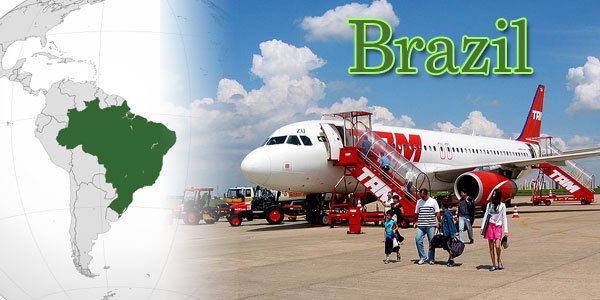

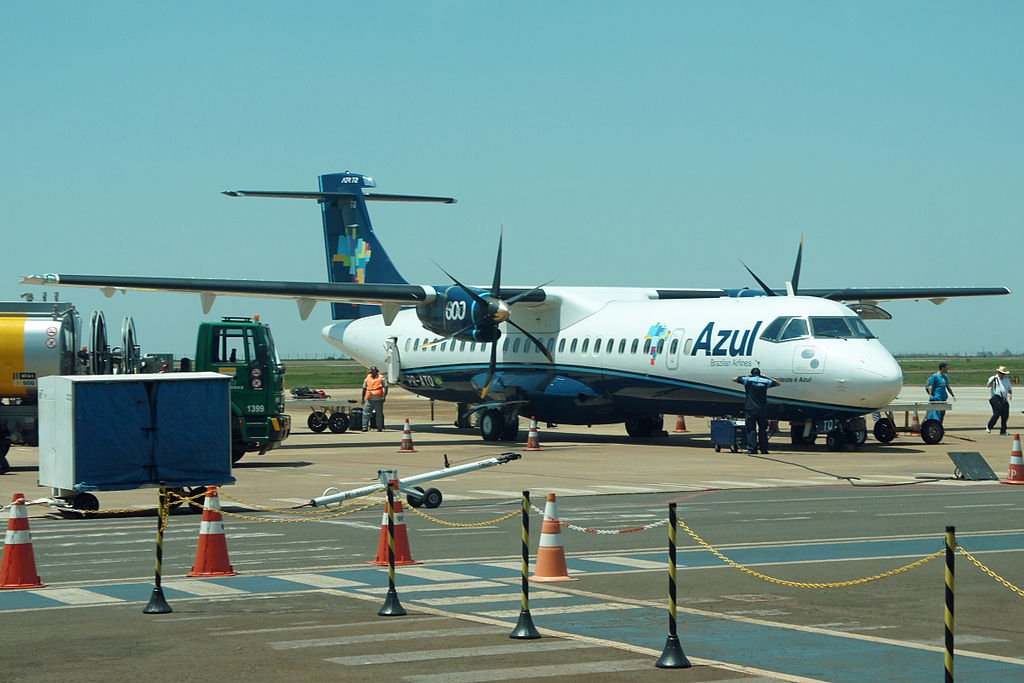
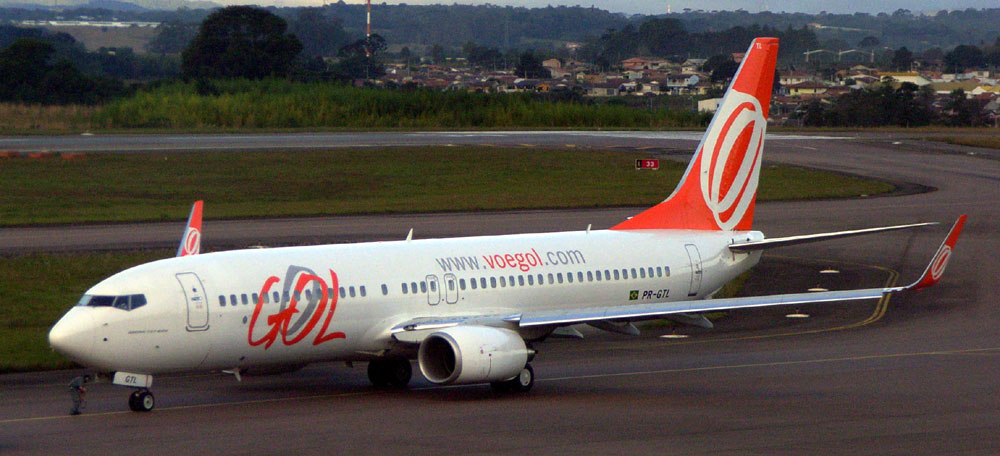
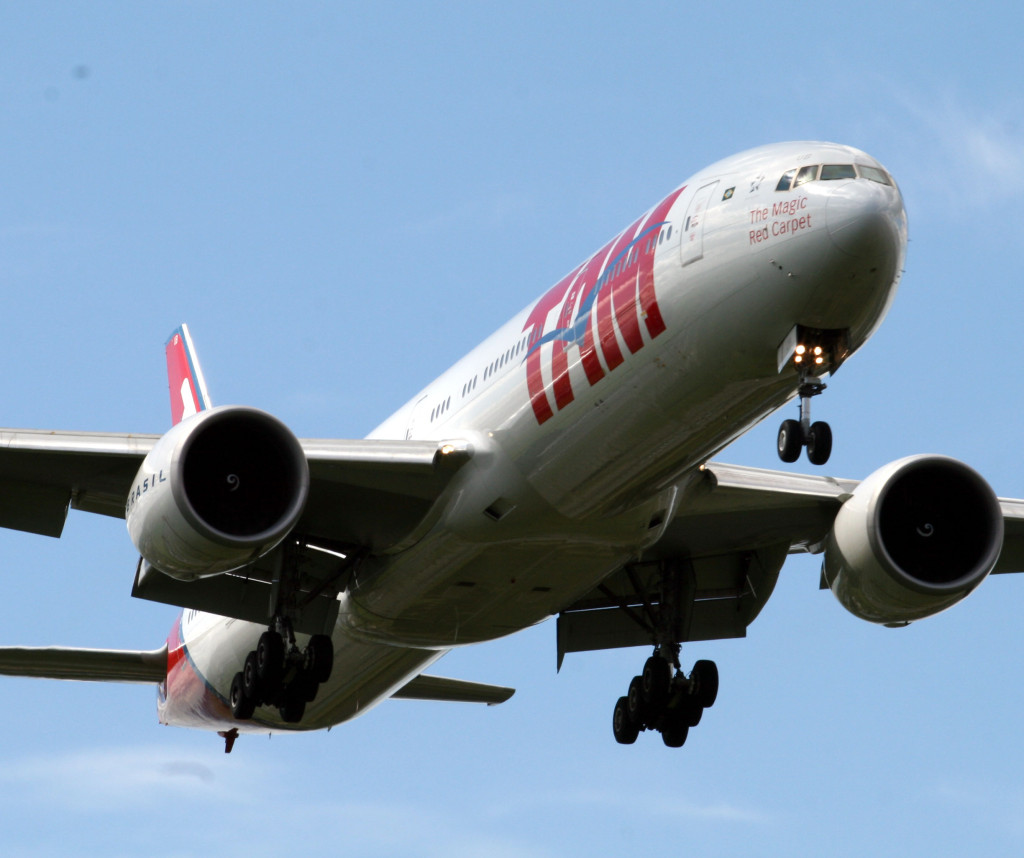

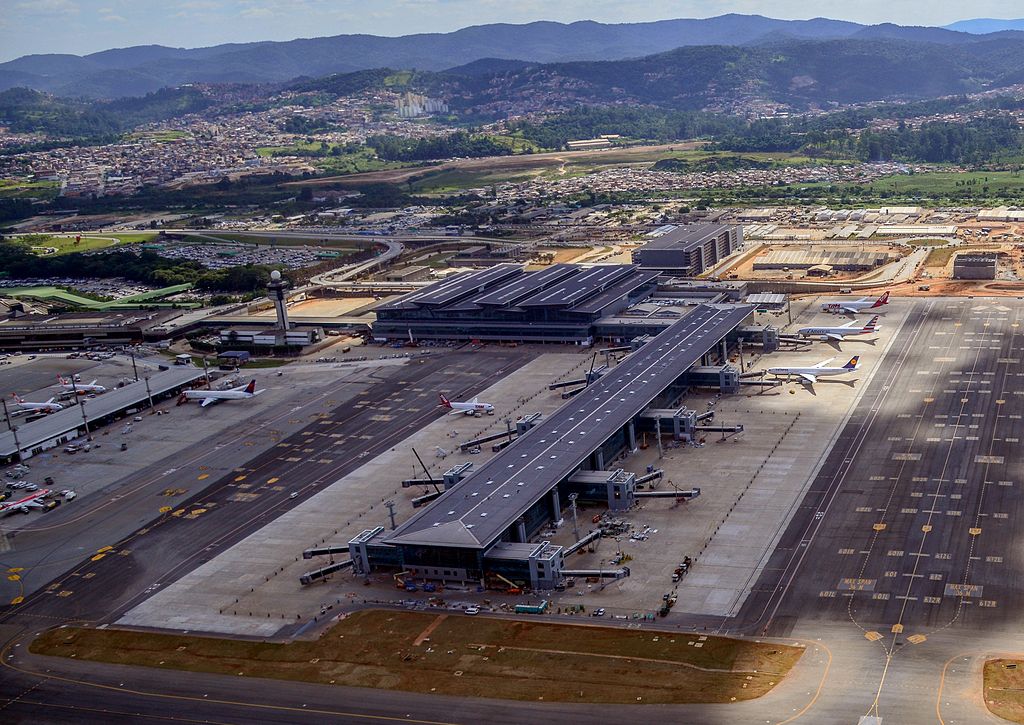
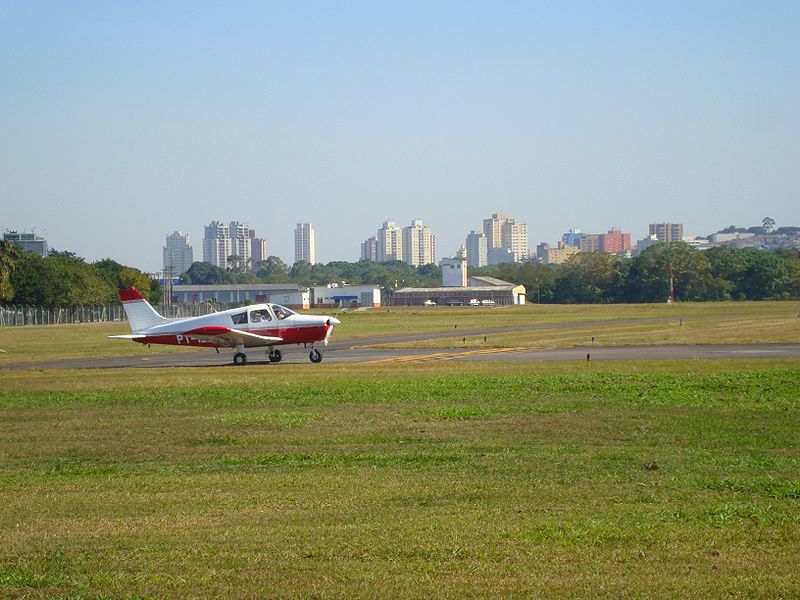




2 comments
[…] at the special World Cup liveries worn by various airlines in the lead up to the tournament, a general overview of airlines and airports in Brazil, Spotting at Sao Paulo’s airports, and Preserved Airliners in Brazil. In this post we’ll look […]
You say that Gaviao Peixoto is the best place to see Embraer. Is it possible to view the aircraft from the perimeter? Or would I require access to the facility? Thanks